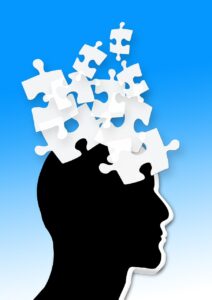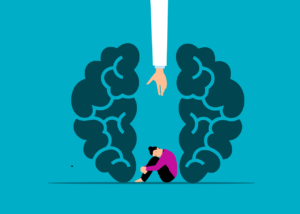In the fast-paced world we live in, stress has become an omnipresent companion for many. The impact of stress on our bodies is profound, both physically and emotionally. In this comprehensive guide, we will delve into the various symptoms of stress, providing insights and strategies to not only identify but also effectively manage stress.
Recognizing Physical Signs of Stress
1. Headaches: The Mind's Distress Signal
Persistent headaches may be more than just a passing inconvenience. Stress-induced headaches are a common manifestation of muscle tension in the neck and scalp. To alleviate this, consider maintaining proper hydration, a simple yet effective way to mitigate stress-induced headaches.
2. Digestive Distress: Unraveling the Gut-Brain Connection
Stress takes a toll on the digestive system, slowing it down and causing issues like heartburn, nausea, and bloating. Understanding the link between stress and gastrointestinal symptoms is crucial. We explore strategies to maintain digestive health and alleviate stress-related discomfort.
3. Sleep Disruptions: Breaking the Cycle
Quality sleep is essential for overall well-being, but stress can disrupt our sleep patterns. Unravel the intricate relationship between stress hormones and sleep disturbances and discover actionable tips to establish healthy sleep habits.
4. Stress Sweat: The Physical Manifestation
Excessive sweating under stress is not just a cosmetic concern. We explore the physiological mechanisms behind stress-induced sweat and delve into holistic solutions to address the root cause, breaking free from the discomfort of stress-related perspiration.
5. Hair Loss: Cortisol's Impact on Locks
Beyond the usual shedding, excessive hair loss could be a silent indicator of stress. Understand the hormonal interplay that leads to hair loss and explore stress management techniques to promote hair health.
6. Chest Pain: Deciphering Stress Signals
Chest pain, while alarming, can sometimes be a result of stress rather than a heart-related issue. Learn how stress contributes to chest pain and the importance of managing stress to break free from a potentially harmful stress-pain cycle.
7. Emotional Toll: Navigating Feelings of Malaise
Stress doesn't just manifest physically; it deeply affects our emotional well-being. Recognize the emotional symptoms of stress, such as restlessness, melancholy, and anxiety. Discover the profound impact of chronic stress on mental health and the importance of seeking professional help when needed.
Here are some steps to consider when symptoms are clear and you need to take action.
- Deep Breathing and Meditation: Practice deep breathing exercises and meditation to calm the mind and reduce stress.
- Mindfulness and Relaxation Techniques: Adopt mindfulness practices and relaxation techniques to stay present and ease tension.
- Physical Activity: Engage in regular physical activity, such as walking, jogging, or yoga, to release endorphins and alleviate stress.
- Healthy Lifestyle Choices: Ensure a balanced diet, adequate sleep, and limit caffeine and alcohol intake for overall well-being and stress reduction.
- Social Support: Connect with friends and family, sharing concerns and seeking support, to foster a sense of belonging and reduce stress.
- Time Management: Organize tasks, prioritize responsibilities, and set realistic goals to manage time effectively and prevent overwhelming stress.
In this short guide, we've explored the intricate ways stress manifests in our bodies. Armed with knowledge, one can proactively identify and address stress symptoms. Remember, prioritizing mental and physical well-being is not a luxury but a necessity in today's demanding world. If you find yourself grappling with stress, consider seeking guidance from a mental health professional who can provide personalized strategies for stress management.
Remember that everyone is different, so exploring a combination of different approaches may be most effective for you.







